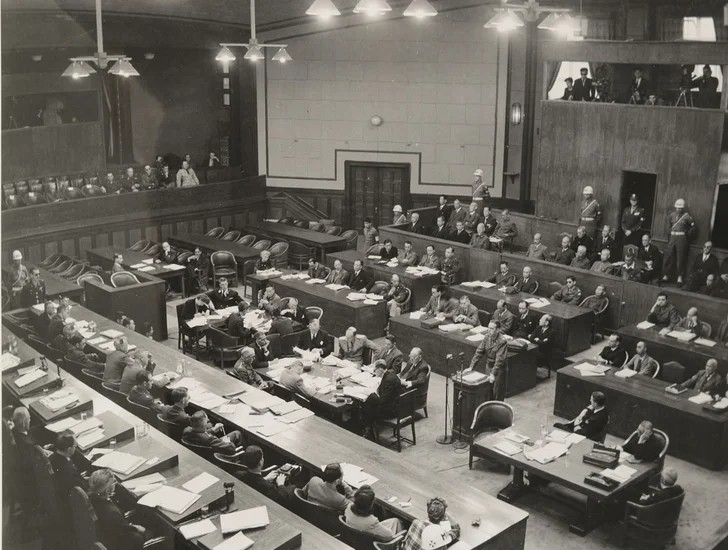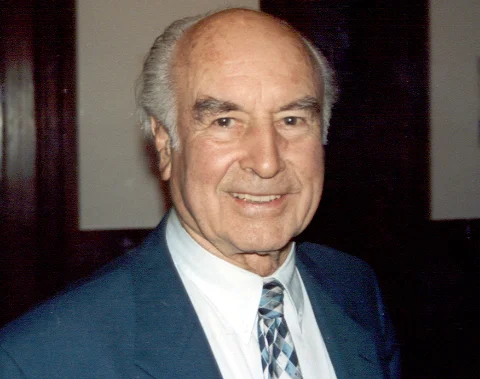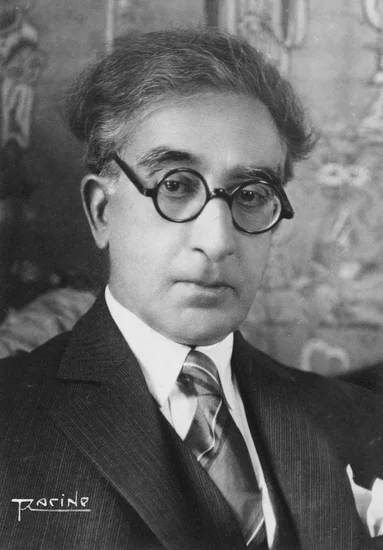April 29 stands as one of history’s most eventful days, witnessing the rise and fall of empires, groundbreaking discoveries, and moments that shaped our modern world across centuries of human achievement.

Politics and Government Events on April 29
1910 – People’s Budget Passes British Parliament
The Parliament of the United Kingdom passed the People’s Budget, marking the first budget in British history explicitly designed to redistribute wealth. This groundbreaking legislation aimed to address growing social inequality through progressive taxation.
The budget’s passage sparked intense political debate about the role of government in addressing economic disparity. Its revolutionary approach to wealth redistribution established precedents that would influence British social policy for decades to come.
1946 – Tokyo War Crimes Tribunal Convenes

The International Military Tribunal for the Far East officially convened to prosecute Japanese war criminals from World War II. Former Prime Minister Hideki Tojo and 28 other Japanese leaders faced charges for their wartime actions.
This landmark tribunal represented one of the first major international efforts to hold military leaders accountable for war crimes. The proceedings established important precedents for international justice and accountability that continue to influence modern war crimes tribunals.
1974 – Nixon Releases Watergate Tapes
President Richard Nixon announced the release of edited transcripts from White House recordings related to the Watergate scandal. This disclosure marked a crucial turning point in the constitutional crisis that would ultimately lead to Nixon’s resignation.
The release of these partial transcripts failed to satisfy investigators and the public, who demanded access to the complete recordings. This moment demonstrated the limits of executive privilege and the power of public accountability in American democracy.
1986 – Sikh Independence Declaration
An assembly of Sikhs known as a Sarbat Khalsa officially declared independence for the proposed state of Khalistan. This historic gathering represented the culmination of growing Sikh nationalist sentiment in Punjab.
The declaration intensified tensions between Sikh separatists and the Indian government, leading to years of conflict. This event highlighted the complex ethnic and religious dynamics that continue to shape South Asian politics today.
Military and Naval History on April 29
1916 – Siege of Kut Ends in British Defeat
The UK’s 6th Indian Division surrendered to Ottoman Forces at the Siege of Kut, marking one of the largest British military surrenders to that point. This devastating defeat shocked the British Empire and demonstrated Ottoman military capabilities.
The surrender represented a significant setback for British forces in the Middle Eastern theater of World War I. The event highlighted the challenges faced by imperial forces operating in unfamiliar territories against determined local resistance.
1916 – Easter Rising Concludes in Dublin
After six days of intense fighting, Irish rebel leaders surrendered to British forces in Dublin, officially ending the Easter Rising. This pivotal moment in Irish history marked the beginning of the end for British rule in Ireland.
The rising’s conclusion set in motion events that would lead to Irish independence within a few years. The courage displayed by the rebels inspired future generations of Irish nationalists and became a cornerstone of Irish national identity.
1945 – German Forces Surrender in Italy

The Surrender of Caserta was signed by German military commanders, formally ending Nazi resistance in Italy. This crucial capitulation removed German forces from the Mediterranean theater just days before the war’s end.
The Italian surrender accelerated the collapse of Nazi Germany’s southern front and freed Allied forces for other operations. This strategic victory demonstrated the effectiveness of the Allied campaign in southern Europe.
1945 – Dachau Concentration Camp Liberation

United States troops liberated the Dachau concentration camp, one of Nazi Germany’s most notorious facilities. American soldiers discovered horrific conditions and thousands of surviving prisoners who had endured years of brutal treatment.
The liberation exposed the full extent of Nazi atrocities to American forces and the world. This moment became a defining experience for many American soldiers and strengthened Allied resolve to completely defeat Nazi Germany.
1970 – Cambodia Invasion Begins
United States and South Vietnamese forces launched a major invasion of Cambodia to disrupt the Ho Chi Minh Trail. This controversial operation aimed to cut off vital supply lines supporting North Vietnamese and Viet Cong forces.
The invasion sparked massive protests across the United States and intensified domestic opposition to the Vietnam War. This military action demonstrated the war’s expansion beyond Vietnam’s borders and its growing impact on regional stability.
Science and Discovery Milestones on April 29
1953 – First 3D Television Broadcast
The first experimental 3D television broadcast in the United States aired an episode of Space Patrol on Los Angeles station KECA-TV. This technological milestone demonstrated the potential for three-dimensional home entertainment decades before it became commercially viable.
The broadcast represented a significant leap forward in television technology and viewer experience. Engineers overcame numerous technical challenges to create this pioneering demonstration of immersive television broadcasting.
1985 – Space Shuttle Challenger Launches

Space Shuttle Challenger launched on mission STS-51-B, carrying scientific experiments and advancing American space exploration capabilities. The mission demonstrated the shuttle program’s versatility in conducting orbital research and satellite deployment.
This successful launch showcased NASA’s growing expertise in reusable spacecraft technology and complex orbital operations. The mission contributed valuable scientific data that advanced understanding of space-based research possibilities.
2008 – Albert Hofmann Dies

Swiss chemist Albert Hofmann passed away at age 102, leaving behind a controversial legacy as the discoverer of LSD. His accidental discovery of the psychedelic compound’s effects fundamentally changed psychology, psychiatry, and popular culture.
Hofmann’s research opened new avenues for understanding consciousness and mental health treatment. His work sparked decades of scientific inquiry into psychedelic compounds and their potential therapeutic applications.
Cultural and Arts Events on April 29
1986 – Los Angeles Library Fire

A devastating fire at the Central Library of the Los Angeles Public Library destroyed or damaged 400,000 books and other materials. This cultural catastrophe represented one of the largest library fires in American history.
The fire eliminated irreplaceable historical documents, rare books, and community resources that had served Los Angeles for decades. The incident highlighted the vulnerability of cultural institutions and sparked improvements in library fire safety protocols nationwide.
2011 – Royal Wedding Captivates Global Audience

The wedding of Prince William and Catherine Middleton took place at Westminster Abbey, drawing an estimated two billion viewers worldwide. This spectacular ceremony represented a modernization of British royal traditions and captured international attention.
The wedding generated enormous economic benefits for Britain through tourism and merchandise sales. The event demonstrated the continued cultural significance of the British monarchy and its ability to unite people across national boundaries.
1980 – Alfred Hitchcock Dies

Legendary filmmaker Alfred Hitchcock passed away, ending one of cinema’s most influential careers. The “Master of Suspense” revolutionized filmmaking techniques and created some of the most memorable thrillers in movie history.
Hitchcock’s innovative camera work, psychological storytelling, and mastery of suspense continue to influence filmmakers worldwide. His artistic legacy transformed cinema from simple entertainment into sophisticated psychological art form.
Religious and Social Events on April 29
1992 – Los Angeles Riots Begin

Massive riots erupted in Los Angeles following the acquittal of police officers charged in the beating of Rodney King. Over three days, 63 people died and hundreds of buildings were destroyed in one of America’s most destructive civil disturbances.
The riots exposed deep racial tensions and police brutality issues that had been simmering in American society. This tragic event sparked national conversations about justice, equality, and the need for police reform that continue today.
1975 – Vietnam War Ends
Operation Frequent Wind began the final evacuation of American citizens from Saigon as North Vietnamese forces approached the city. This desperate operation marked the end of direct American involvement in the Vietnam War.
The evacuation represented a humiliating defeat for American foreign policy and military intervention. Images of helicopters evacuating personnel from the embassy roof became iconic symbols of American withdrawal from Southeast Asia.
1991 – Bangladesh Cyclone Devastation

A massive cyclone struck Bangladesh’s Chittagong district with winds of 155 mph, killing at least 138,000 people and leaving ten million homeless. This natural disaster represented one of the deadliest cyclones in recorded history.
The catastrophe highlighted the vulnerability of densely populated coastal areas to extreme weather events. International relief efforts demonstrated global solidarity while exposing the challenges of disaster response in developing nations.
Business and Economic Events on April 29
2004 – Final Oldsmobile Produced

The final Oldsmobile rolled off the production line in Lansing, Michigan, ending 107 years of continuous vehicle manufacturing. This closure marked the end of one of America’s oldest automotive brands and a significant shift in the industry.
General Motors’ decision to discontinue Oldsmobile reflected changing consumer preferences and increased competition in the automotive market. The brand’s demise symbolized the broader transformation of American manufacturing and the challenges facing traditional industries.
2015 – Jean Nidetch Dies

Jean Nidetch, co-founder of Weight Watchers, passed away after revolutionizing the weight loss industry. Her innovative approach to group support and behavioral modification created a multi-billion dollar business empire.
Nidetch’s entrepreneurial vision transformed personal struggles with weight into a global business phenomenon. Her company’s success demonstrated the power of peer support and community-based approaches to health and wellness challenges.
2005 – John Kenneth Galbraith Dies

Renowned economist John Kenneth Galbraith passed away, leaving behind influential theories about wealth inequality and economic policy. His work shaped decades of economic thought and government policy approaches.
Galbraith’s writings on affluent society and economic inequality remain relevant to contemporary policy debates. His intellectual contributions influenced generations of economists and policymakers worldwide.
Transportation and Infrastructure on April 29
1903 – Frank Landslide Disaster

A massive landslide killed 70 people in Frank, Alberta, Canada, in one of the country’s deadliest natural disasters. The disaster destroyed part of the town and blocked major transportation routes through the Canadian Rockies.
The landslide demonstrated the geological risks faced by mountain communities and transportation infrastructure. This tragedy led to improved understanding of slope stability and better planning for communities in mountainous regions.
1986 – USS Enterprise Suez Canal Transit
The USS Enterprise became the first nuclear-powered aircraft carrier to transit the Suez Canal, navigating from the Red Sea to the Mediterranean. This historic passage demonstrated the strategic mobility of nuclear-powered vessels.
The transit marked a significant milestone in naval engineering and international maritime cooperation. The successful passage proved that large nuclear vessels could safely navigate one of the world’s most important shipping channels.
2013 – Bagram Air Base Crash

National Airlines Flight 102, a Boeing 747 freighter, crashed during takeoff from Bagram Airfield in Afghanistan, killing all seven crew members. The accident highlighted the dangerous conditions faced by cargo operations in conflict zones.
The crash investigation revealed critical safety issues with cargo loading and aircraft stability. This tragedy led to improved safety protocols for military and civilian cargo operations in challenging environments.
Sports and Recreation on April 29
1967 – Muhammad Ali Stripped of Title

Boxing champion Muhammad Ali was stripped of his heavyweight title after refusing induction into the United States Army. This controversial decision sparked intense debate about athletes’ rights to protest and civil disobedience.
Ali’s principled stand against the Vietnam War cost him prime years of his boxing career but established him as a symbol of resistance. His sacrifice demonstrated the power of individual conscience over institutional pressure and inspired generations of athlete activists.
2015 – Baltimore Orioles Empty Stadium Game
The Baltimore Orioles and Chicago White Sox played before an empty stadium due to civil unrest following the death of Freddie Gray. This unprecedented event set the all-time low attendance record for Major League Baseball.
The game became a powerful symbol of how social issues can impact sports and community life. The empty stadium images highlighted the deep divisions and tensions that were affecting American cities.
1951 – Dale Earnhardt Born

NASCAR legend Dale Earnhardt was born, beginning a life that would transform American motorsports. His aggressive driving style and charismatic personality made him one of racing’s most beloved figures.
Earnhardt’s career achievements and tragic death at Daytona in 2001 cemented his status as a racing icon. His legacy continues to influence NASCAR and inspire new generations of drivers and fans.
Notable Births on April 29
1901 – Emperor Hirohito Born

Emperor Hirohito of Japan was born, destined to become one of the most controversial monarchs in modern history. His reign would span Japan’s militaristic expansion, World War II, and the country’s post-war transformation into a peaceful democracy.
Hirohito presided over Japan’s dramatic transformation from feudal society to modern industrial power. His role during World War II remains debated, but his post-war leadership helped establish Japan as a peaceful, prosperous nation.
1936 – Zubin Mehta Born

Renowned conductor Zubin Mehta was born in India, beginning a career that would span the globe’s most prestigious orchestras. His musical leadership brought classical music to international audiences and bridged cultural divides.
Mehta’s conducting career included landmark performances and recordings that defined classical music for generations. His work with the Israel Philharmonic Orchestra and other major ensembles established him as one of the world’s premier conductors.
1957 – Daniel Day-Lewis Born

Academy Award-winning actor Daniel Day-Lewis was born, beginning a career marked by intense method acting and transformative performances. His dedication to his craft earned him three Best Actor Oscars and critical acclaim worldwide.
Day-Lewis’s selective approach to roles and complete character immersion set new standards for acting excellence. His performances in films like “There Will Be Blood” and “Lincoln” demonstrated the power of total artistic commitment.
1958 – Michelle Pfeiffer Born

Actress Michelle Pfeiffer was born, launching a career that would make her one of Hollywood’s most respected performers. Her versatility and screen presence established her as a leading actress across multiple decades.
Pfeiffer’s performances in films ranging from “Scarface” to “Batman Returns” showcased her range and talent. Her career longevity and continued relevance demonstrate the enduring power of authentic screen presence.
1970 – Andre Agassi Born

Tennis champion Andre Agassi was born, beginning a career that would revolutionize professional tennis. His powerful baseline game and charismatic personality brought new excitement to the sport.
Agassi’s career Grand Slam victories and dramatic personal story made him one of tennis’s most compelling figures. His later philanthropic work in education demonstrated how athletic success can create positive social impact.
1970 – Uma Thurman Born

Actress Uma Thurman was born, beginning a career that would include iconic roles in independent and blockbuster films. Her collaborations with directors like Quentin Tarantino created some of cinema’s most memorable characters.
Thurman’s performances in “Pulp Fiction” and “Kill Bill” established her as a versatile actress capable of both dramatic and action roles. Her career demonstrates the evolution of strong female characters in modern cinema.
1976 – Jerry Seinfeld Born

Comedian Jerry Seinfeld was born, beginning a career that would transform television comedy. His observational humor and groundbreaking sitcom “Seinfeld” redefined what television comedy could accomplish.
Seinfeld’s show about “nothing” became one of the most influential sitcoms in television history. His comedy style and business acumen created a template for modern comedian success across multiple media platforms.
Notable Deaths on April 29
1933 – Constantine P. Cavafy Dies

Greek poet Constantine P. Cavafy passed away, leaving behind a literary legacy that would influence generations of writers. His innovative approach to historical themes and personal reflection created a unique poetic voice.
Cavafy’s poetry explored themes of memory, desire, and historical consciousness with remarkable depth. His work gained international recognition decades after his death and continues to inspire contemporary poets worldwide.
1951 – Ludwig Wittgenstein Dies

Philosopher Ludwig Wittgenstein passed away, concluding one of the most influential intellectual careers of the twentieth century. His revolutionary approaches to language, logic, and meaning transformed modern philosophy.
Wittgenstein’s “Tractus Logico-Philosophicus” and later works fundamentally changed how philosophers approach questions of language and reality. His intellectual legacy continues to influence philosophy, linguistics, and cognitive science.
1997 – Mike Royko Dies

Pulitzer Prize-winning journalist Mike Royko passed away, ending a career that defined American newspaper commentary. His sharp wit and populist perspective made him one of Chicago’s most beloved columnists.
Royko’s writing captured the essence of working-class American life with humor and insight. His columns provided a voice for ordinary people and demonstrated the power of local journalism to address universal themes.
2020 – Irrfan Khan Dies

Indian actor Irrfan Khan passed away, concluding a career that bridged Bollywood and Hollywood with remarkable success. His nuanced performances brought depth and authenticity to both Indian and international cinema.
Khan’s roles in films like “Life of Pi” and “Slumdog Millionaire” showcased his ability to convey complex emotions with subtle power. His death represented a significant loss for international cinema and cross-cultural artistic collaboration.
Holidays and Observances on April 29
Day of Remembrance for Chemical Warfare Victims

The United Nations observes this day to honor victims of chemical weapons attacks throughout history. This solemn remembrance highlights the ongoing efforts to eliminate these weapons and prevent future chemical warfare.
The observance promotes awareness of chemical weapons’ devastating humanitarian impact and supports international efforts to achieve complete disarmament. This day reinforces the global commitment to preventing chemical weapons use.
International Dance Day
UNESCO celebrates International Dance Day to promote dance as an art form and recognize its cultural significance worldwide. This celebration highlights dance’s power to unite people across cultural and linguistic boundaries.
The day encourages participation in dance activities and appreciation for diverse dance traditions. Cultural institutions worldwide organize performances and educational programs to celebrate dance’s universal appeal.
Shōwa Day in Japan
Japan observes Shōwa Day as part of Golden Week, commemorating Emperor Hirohito’s reign and reflecting on the Shōwa era’s complex history. This national holiday begins Japan’s most significant holiday period.
The observance encourages reflection on Japan’s modern history and the dramatic changes during the Shōwa period. Golden Week’s beginning marks a time for family gatherings and cultural celebrations across Japan.
